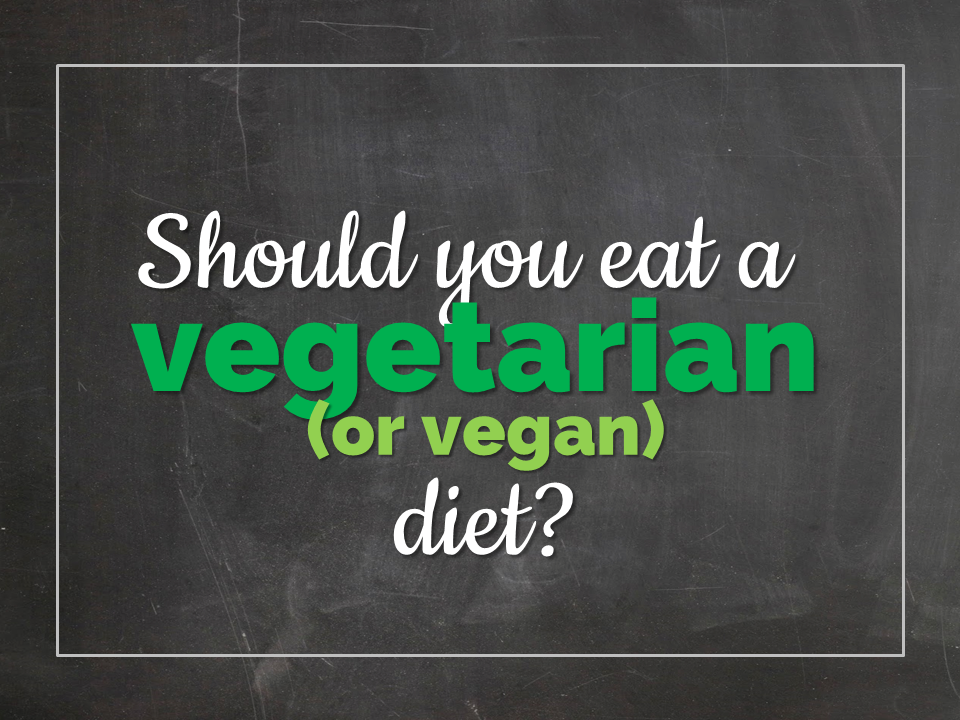Nine years ago, I began eating a vegetarian diet.
No meat or fish or seafood.
It was out of pure curiosity.
Being a personal trainer at the time, I wanted to know how I’d feel without eating meat.
Without all that animal protein.
Part of me believed that without all that protein, my energy would drop.
That I would feel weaker.
But that didn’t happen.
In fact, if anything, the opposite happened.
My energy was great and my digestive system worked better than ever.
And so, because I felt so good, I continued.
Although two years ago, I re-introduced fish and seafood which I now eat occasionally.
But despite my experience, I don’t push a vegetarian or vegan diet on my clients, and I don’t think it’s for everyone.
Or that meat is necessarily bad for you.
What I have come to learn and understand though, is that more plant-based eating is better for overall health.
And better for the animals, and better for the planet as a whole.
Not to mention, eating more plant-based and less animal-based foods can be cost-effective.
So, I do think a more plant-based diet is the best thing for most people.
And if you’re considering going vegetarian, vegan, or just more plant-based, here are some of the benefits, and some of the things to be aware of:
Eating more plant-based is better for overall health
If you’ve got high cholesterol, high blood pressure, obesity, or diabetes, eating more whole plant-based foods has been proven beneficial.
There are many studies to support this (see some of these referenced below.)
In some cases, people who have switched to a plant-based diet have been able to get off their medications, and some have even reversed their conditions.
And plant-based diets have also been associated with longer life expectancy.
Although it’s not that clear, some reasons for these benefits could be that animal foods tend to be higher in saturated fats, take longer to digest, and are more acidic in the body (causing inflammation.)
If you do decide to eliminate or significantly reduce your intake of animal products, consider supplementing with vitamin B12, vitamin D3, and omega-3 (algae or krill based).
Eating plant-based can be cheaper
It’s no secret that animal products are expensive.
Consider the price of meat, fish, seafood, dairy, and even eggs.
Plant-based products can be much more affordable.
A tin of legumes and a pound of tofu for example.
Of course, you can find expensive vegan/vegetarian products, but overall, eating plant-based can save you money.
Eating plant-based improves the planet
As humans in the western world, we eat unbelievable and unsustainable quantities of meat.
It would be impossible to feed the planet if everyone ate like us.
Globally, we don’t have the space, the food, or the fresh water to raise that much livestock.
Let alone the air and water pollution all those animals cause.
If we all began to eat less meat, we would have more resources to grow plant food.
And we’d cause less pollution.
The earth would be better off.
Eating plant-based saves animals
This is an obvious reason, but a significant one.
Because it’s why so many people adopt a vegetarian or vegan in the first place.
The fact is that many of us who eat meat have never had to kill an animal ourselves.
And I think if we had to, we’d probably easily go vegetarian.
So, if you’re open to it, consider getting educated on what’s involved in raising and butchering livestock.
And compare the more industrial, large-output model versus more humane and sustainable options.
Then decide what from that place of awareness what you want to do.
Plant-based isn’t necessarily ALL good
Even if you decide on eating more plant-based foods, your diet can still be unhealthy.
Sugar, flour, vegetable oils, and salt are vegan/vegetarian.
So, don’t assume plant-based is healthier (even if the packaging makes it look and sound “healthy.”)
Because, it’s not necessarily.
So, no matter what diet you choose to follow, make sure it’s primarily made up of whole foods.
Meaning foods as close to their natural state as possible.
Real foods.
Fruits, vegetables, whole grains, legumes, nuts, seeds, eggs, and dairy.
(Although if eating vegan, no eggs or dairy.)
Are you considering a more plant-based diet?
It’s a personal decision.
But my hope is that you consider at least reducing the quantity of meat you eat.
For all the reasons I’ve mentioned, but especially for your health as you age.
Heart disease, diabetes, obesity and some types of cancer are preventable through diet alone.
And as we age, we tend to be less active, so what and how we eat becomes that much more important.
I’d love to know your opinion about this topic, so feel free to comment!
And keep moving forward,
Debbie
P.S. If you want to go more plant-based, I have lived it first hand and I’d love to help. Let’s talk: https://calendly.com/debbie-harbec-coaching/free-consultation
P.P.S. Here are some studies that I referred to:
Tonstad S, Butler T, Yan R, Fraser GE. “Type of vegetarian diet, body weight, and prevalence of type 2 diabetes.” Diabetes Care. 2009 May;32(5):791–6. DOI: http://dx.doi.org/10.2337/dc08-1886.
Fraser GE. “Vegetarian diets: what do we know of their effects on common chronic diseases?” Am J Clin Nutr. 2009;89(5):1607S-1612S. DOI: http://dx.doi.org/10.3945/ajcn.2009.26736K Erratum in: Am J Clin Nutr 2009 Jul;90(1):248.
Shao-Yuan Chuang, Tina H T Chiu, Chun-Yi Lee, Ting-Ting Liu, Chwen Keng Tsao, Chao A Hsiung, Yen-Feng Chiu. “Vegetarian diet reduces the risk of hypertension independent of abdominal obesity and inflammation: a prospective study.” J. Hypertens, 2016 Nov, DOI: 10.1097/HJH.0000000000001068
Hyunju Kim, Laura E. Caulfield, Vanessa Garcia‐Larsen, Lyn M. Steffen, Josef Coresh, and Casey M. Rebholz. “Plant‐Based Diets Are Associated with a Lower Risk of Incident Cardiovascular Disease, Cardiovascular Disease Mortality, and All‐Cause Mortality in a General Population of Middle‐Aged Adults.” JAHA Aug 2019, DOI: https://doi.org/10.1161/JAHA.119.012865
Elisabeth Tran, Hanna Fjeldheim Dale, Caroline Jensen, and Gülen Arslan Lied. “Effects of Plant-Based Diets on Weight Status: A Systematic Review” Diabetes Metab Syndr Obes. 2020, DOI: 10.2147/DMSO.S272802



As you know Debbie, Gerry is no longer on medication. It’s really amazing! It’s quite troubling to assume that doctors know best, well they do on a whole but never do they suggest healthy alternatives before medication. So sad because I do believe that all medication has effects. It’s unfortunate that we can go years intoxicating our bodies with pills when in a lot of circumstances illness can be reversed by choosing to eat well and exercise.
I love that Gerry was able to get off his meds!! He’s a perfect example of what’s possible with a plant-based diet… and a great wife 🙂
Love this post! A lot to be said for eating a plant based diet. I mostly plant based- I eat small amounts of lean meat and I can say I feel much better doing so. So many reasons to eat mostly plants.
Thanks Audrey! I love that you’re eating mostly plant-based and feeling good 😊